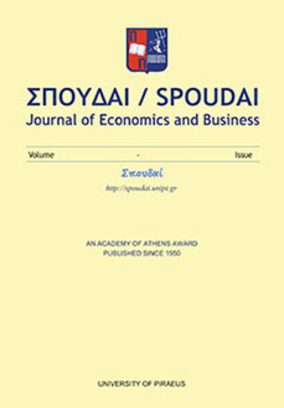Assessing the impact of military expenditure on economic growth : a longitudinal analysis of Greece, 1958-93
Part of : Σπουδαί : journal of economics and business ; Vol.53, No.4, 2003, pages 23-53
Issue:
Pages:
23-53
Abstract:
Earlier empirical studies on the growth effects of military expenditure have reported conflicting research findings, attributable to the use of cross-sectional data and differences in the specification of the estimated models, definitions of the variables and estimation techniques used. Moreover, to the extent that countries differ substantially in resources and socioeconomic structures, it is reasonable to expect differences in both the intensity and the direction of the growth effects of military spending among various regions of the world. These considerations point to the need for case specific studies using time-series data for individual countries. In this context, the present study seeks to contribute to current research in the area by investigating the growth-defence relationship in the case of Greece over the period 1958-93. Basically, military expenditure may affect economic growth through the creation of aggregate demand, the possible reduction of investment, the defence spin-offs and the crowding-out of the work force. Those influences can be captured by a growth-defence relationship based on the two-sector neoclassical production-function framework, which allows the level of activity in one sector to act as an externality in another sector and also permits marginal factor productivities to vary between the two sectors. Using the technique of cointegration and the related notion of error correction, the paper reports findings that lend support to the hypothesis that military expenditure retards the output growth rates in Greece, contrary to the inconclusive findings of previous studies.
Subject (LC):
Keywords:
military expenditure, economic growth, cointegration
Notes:
Περιέχει πίνακες, παράρτημα, σημειώσεις και βιβλιογραφία




